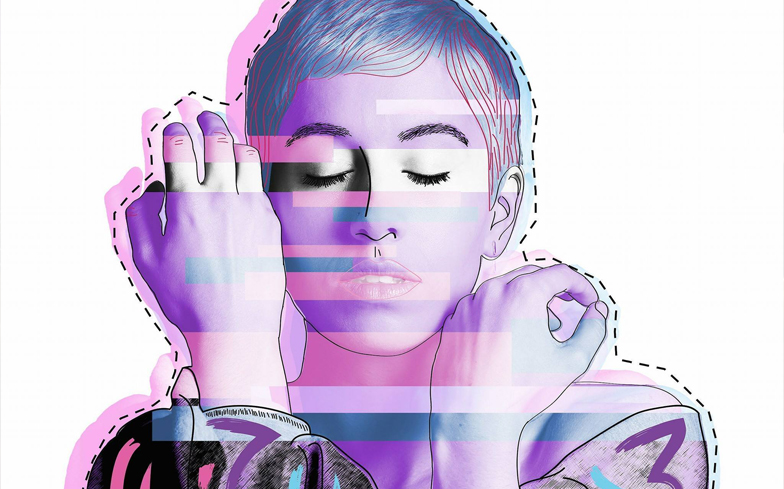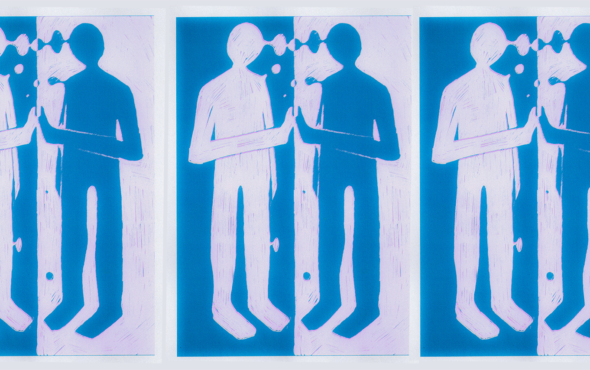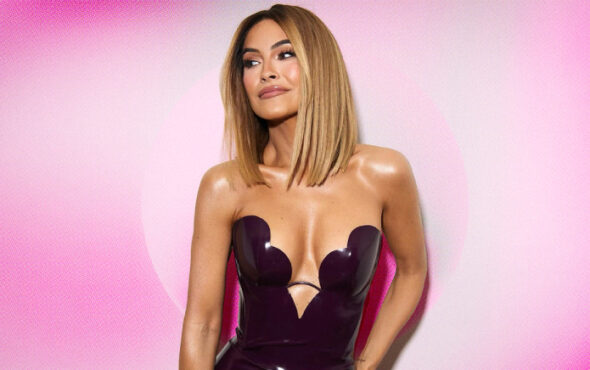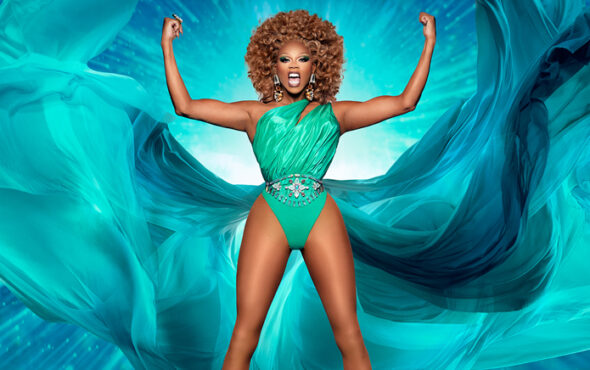
Get out the flag bunting, start prepping those traditional European dishes, and get that sound system set to loud as it’s that time again: the 63rd Eurovision Song Contest is upon us.
The biggest and best songs will go head-to-head at the Altice Arena in Lisbon, Portugal on 12 May as the world’s most-watched music competition will have hundreds of millions of people across the globe tuning in.
This year, the United Kingdom will be represented by Storm sung by British singer-songwriter SuRie.
The classically-trained artist is a graduate from the Royal Academy of Music and has plenty of experience when it comes to live performance, so it feels like we’ve once again put our best foot forward.
Gay Times caught up with the star ahead of her huge performance in Lisbon to talk about the positivity that surrounds the show, how the UK is taking the contest way more seriously these days, and who she considers her biggest competition on the night.
Now, this isn’t your first time at Eurovision…
It’s not. I did backing vocals for Loïc Nottet and Blanche, so it’s been for Belgium twice.
Was it those experiences that inspired you to want to compete for the UK?
Those experiences blew my mind with how beautiful and positive Eurovision can be. It wasn’t necessary something that was on my radar professionally as a lead artist, but when the opportunity arose doing it for my country it felt like an incredibly exciting and wonderful experience to take. Having had the slight advantage of seeing how incredible the whole machine that is Eurovision is, it was something I couldn’t pass up.
What’s your memories of Eurovision when you were younger?
I guiltily put my hands up: I had none. People will hate me for that! But I can’t lie. It wasn’t on my radar. It wasn’t that I actively avoided it, we just didn’t watch it as a family, I didn’t go to parties that friends had, so 2015 with Loïc was my first experience of it. It blew my mind and then I was kicking myself for all the years that I’d missed. I’m now trying to catch up and do lots of research. There’s a world of Eurovision wealth out there.
I can’t imagine how your first experience of Eurovision was actually being there.
I know right? I was like a glittery train wreck, just bombarded by it all.
What was the one thing that surprised you about it the most?
How positive it is. How every single person there with different flags, whether it’s neighbouring countries or enemies, they’re just there to celebrate the good things. The diversity, the equality, the respect for other cultures. Whether you like the music or not, there’s something for everyone in Eurovision. But ultimately, everyone was there to have a really good time. If you could bottle up some that positive energy that it creates and charges in the city where it’s taking place, and spread that out further throughout the calendar, I think that would be a really helpful thing.
Did you have any reservations about putting yourself forward?
My only reservation was if the track didn’t necessarily fit with me. I was working throughout last year in my job as a songwriter writing lots of options for Eurovision and different delegations for the UK and other countries. So I know what it’s like behind the scenes. It’s a bit of a jigsaw puzzle trying to fit together tracks and artists. A couple of songs that were floated to me were not my style, I thought perhaps it just wasn’t my year. Right at the last minute, Storm popped up and that was from a songwriting camp I hadn’t been on. When it did I was like, ‘Actually I think could probably do something with that.’
What was it about the song do you think resonated with the British public in order for them to select it?
Its beautiful melody. It’s simple and that’s what’s effective. That’s what makes great pop. The message is one that is wide open to interpretation. Whatever storms we are dealing with – be the personal, national or global – every single person I’ve spoken to has related to something different with the song, but specific and quite deep. It’s had that personal attachment. Everyone has sort of taken it on as their own. They’re all right, there’s no wrong answer to that.

It’s that universal appeal that will hopefully have Europe voting on the night…
Hopefully. I get messages on social media from a 14-year-old in Estonia, to a boy in Birmingham who’s struggling with school at the moment, but they listen to Storm every day because the lyrics are reminding them to get through it. The uplifting nature of the production doesn’t dive them into a wallowing mess, but actually kind of perks them up. That’s reaching out all over the place.
It feels that the UK has really stood up and started taking Eurovision seriously in the past few years with our entries – it was about time right?
I really do think the UK is doing a bit of a steady climb. These things take time, but I do feel like improvements are definitely happening. I really hope to be a part of that continuation of that improvement. I’ll try do us proud!
There’s always been a stigma around Eurovision and the artists that enter, but it feels like that is breaking down as well.
I hope so. You look at the artists who participate for Sweden and for Australia even, they are hugely commercially and successful acts to be celebrated and respected. I’ll try do us proud, and I think that’s all I can really say on that. It’s a tricky one.
Who do you consider your biggest competition?
I’ve tried to listen to them all, but there are like 40 billion of them so I might have missed a few! I think anyone who can beat-box like a chicken should be my friend [referring to Israel’s entry Toy]. I’m a big fan of Australia. Every year they bring joyful, beautifully-produced pop. Jessica Mauboy is another one this year with a feel-good song.
What previous experience from throughout your whole career will you bring to your Eurovision performance?
Music is all I’ve ever done in my life. I’ve worked really hard since I was about 12 writing songs, gigging on the acoustic circuit in London since I was 14. So I’d like to think I have practiced at working a crowd, telling musical stories, and knowing my craft, my voice, and myself. I’ve been at this a little time, so hopefully I know what I’m doing.
Eurovision is a huge contest so that experience is invaluable.
Exactly – nothing can prepare you for Eurovision. Even having been through it before, I was a backing singer, I’ve not had this level of responsibility or pressure. I can handle it – I’m very proud and excited to be in this position – but nothing can prepare me for this.
But were you prepared for the surge in gay fan base that also comes with Eurovision?
Oh they have been the best. There’s nothing like it. The whole LGBTQ community on social media, engaging with fans who are the most enthusiastic, passionate and wonderful – that’s a bonus aspect of this that I hadn’t really anticipated. I’m loving that.
What are your plans after Eurovision?
The follow-up single – which is a bit of a summer bop – will be released. It’s from an amazing Polish producer, so I’m really excited. Then I’m going on tour in the UK with a Eurovision Unplugged set. It pays homage to the Eurovision world who has given me this incredible opportunity, but stripping it back and getting focussed on the stories. It’ll be the lyrics and melody in a SuRie style with piano and a string quartet. So I’ll be taking that around theatres.
The Eurovision Song Contest Sem-Final 2 will air on BBC Four on Thursday, 10 May at 8pm, and the Grand Final will air on BBC One on Saturday, 12 May at 8pm.



